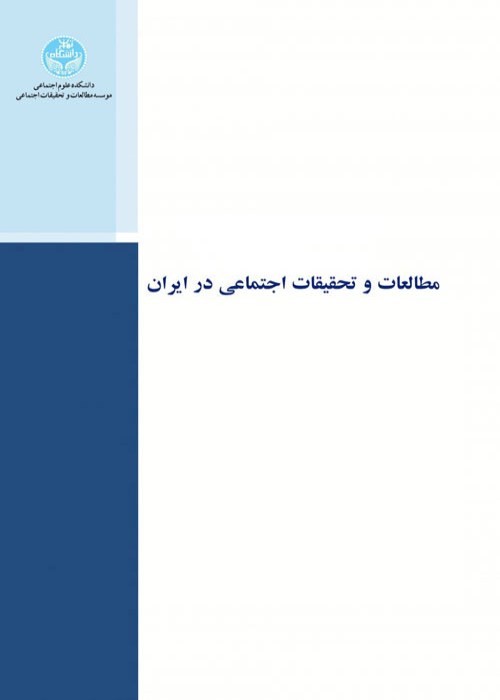Sociological Explanation of Tolerance and its Dimensions (Case Study: Citizens over 18 Years Old in Kermanshah Province)
Tolerance is in fact a paradoxical situation in which people have to endure things that are not acceptable, or even hated and disliked. This paradoxical situation has prevented the tolerance from being into a “rote learning” in many societies and citizens. Tolerance can be seen as a “flawed virtue” because it refers to the acceptance of the differences between others and us that we would rather fight, ignore, or overcome. However, ‘flawed’ a virtue it may be, tolerance may be the only thing that stands between peaceful coexistence and violent intergroup conflict. This makes tolerance a topic of great importance. While scholars have systematically studied political (in) tolerance and the closely related subject of prejudice for over half a century now, many conceptual and empirical puzzles remain unsolved. This may well reflect the complex nature of tolerance and the dilemmas which are intrinsic to the idea of toleration. The problem of tolerance is widespread in research. This is due to a number of aggressive manifestations unacceptable for modern society, which is opposed to tolerance. An analysis of the sources on problems of tolerance/intolerance suggests that it is possible to influence intolerance by studying and reproducing tolerance. At the same time, in the contemporary world, where the entanglement and moral density of actions is a prominent feature, tolerance is considered very important for the continuation of a stress-free and peaceful relationship between individuals, and local and global communities. Accordingly, the present study aimed to explain the sociological status of tolerance and its dimensions among citizens 18 years and older in Kermanshah province.
The research method is descriptive survey, and the statistical population of the study included all citizens over 18 years old in Kermanshah province. Based on the Cochran’s formula, 855 people were selected by multi-stage cluster.
Findings showed that the mean of tolerance in Kermanshah province was 2.68 (from 1 to 5), and the respondents had the most tolerance socially (3.03), ideologically (2.48), and politically (2.47), and moral-behaviorally (2.38). Findings also indicated that the variables of education level, gender, marital status, capital and its dimensions had an effect on tolerance, but the variables of age, ethnicity, religion, and city of residence did not have an effect on tolerance.
In fact, it seems that according to the results of the study, ethnicities and religions in Kermanshah province, regardless of their diversity, have negative effects on the tolerance of the citizens of the province, because it seems that the “vulgar” type of identity seeking has been prevalent in Kermanshah for many years, especially in the last four decades, which generally seeks to reject the opposite identity and highlights the manifestations that are mainly confrontational and promoters of violence (verbal-behavioral). The presence of stereotypes among ethnic (and of course much more religious) groups in Kermanshah is one of the external manifestations of this kind of vulgar identity. In addition, the results of the study based on the almost identical effects of all three types of capital (economic, social, and cultural) on tolerance indicate the importance of paying attention to multidimensional models in explaining tolerance and side components. This is a topic that has recently come to the attention of contemporary thinkers and, of course, is in stark contrast to the views of many thinkers, from Marxists to modernization theorists (that change in political development is the sole cause of change).
- حق عضویت دریافتی صرف حمایت از نشریات عضو و نگهداری، تکمیل و توسعه مگیران میشود.
- پرداخت حق اشتراک و دانلود مقالات اجازه بازنشر آن در سایر رسانههای چاپی و دیجیتال را به کاربر نمیدهد.



